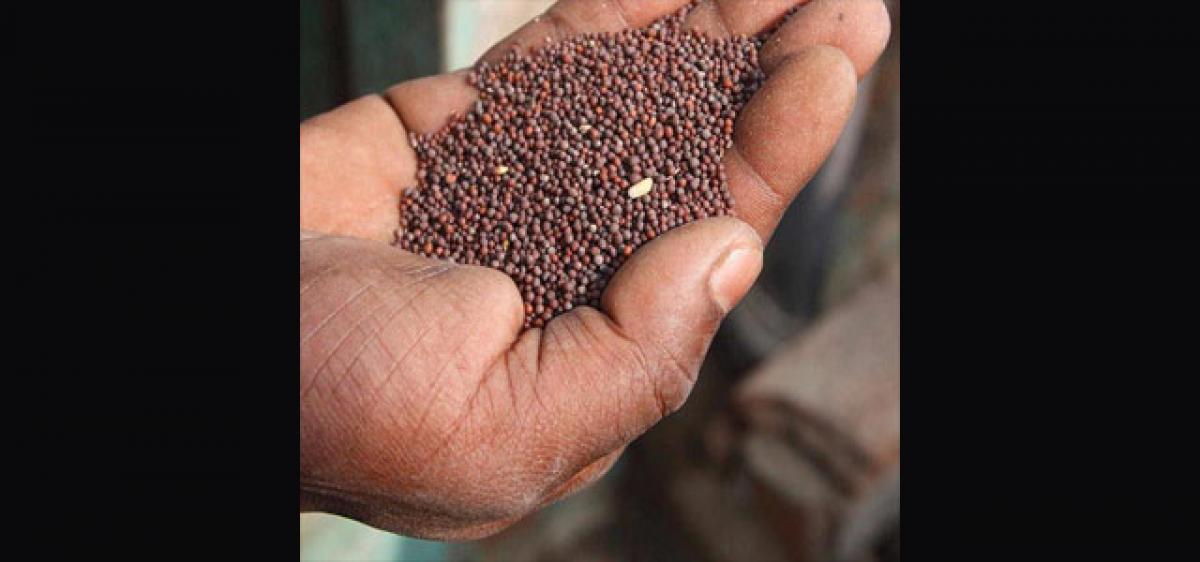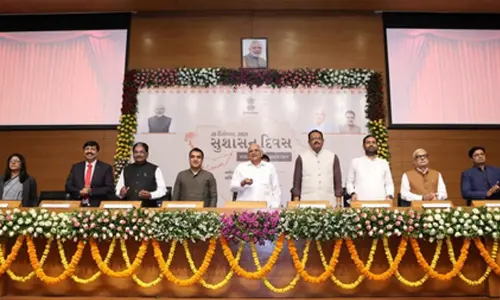Pungent concerns

The Genetic Engineering Appraisal Committee (GEAC) recommending commercial production of genetically modified (GM) mustard has once again triggered concerns over the possible implications for health, environment and farmers’ economy.
The Genetic Engineering Appraisal Committee (GEAC) recommending commercial production of genetically modified (GM) mustard has once again triggered concerns over the possible implications for health, environment and farmers’ economy.
Scientific and technological advancements in agriculture are essential to boost the productivity of crops in India to ensure better price for farmers and food security for the people. At the same time, the central government before endorsing the GEAC recommendation has to assuage the concerns being expressed on possible hazards of allowing GM technologies especially in the food crops. Similar concerns were expressed when the GEAC approved Bt Brinjal, finally leading to Centre overruling the permission.
The justification for such concerns is that both the transgenic Brinjal and mustard are edible substances unlike Bt Cotton. In fact, toxins in Bt Cotton could also enter the food cycle through indirect means. However, the transgenic food crops can play havoc, and, therefore, the need for long-term studies to evaluate their safety and ecological impact.
The GM technologies can compel farmers to use specific type of herbicides making them dependent on multinationals that produce them.
The critics apprehend that GM mustard is a modified crop so it can absorb huge amount of herbicides – in this case it is Glufosinate, a well-known neurotoxin. GEAC has not provided any appropriate information about this research, amount of Glufosinate it contains, health safety measures, effects of this on environment and balance of nature etc. Neurotoxins are toxins that are poisonous or destructive to nerve tissue and can have devastating consequences for human health.
The herbicide contained by GM mustard seeds, if sprayed, will kill all other forms of life with chemical toxic which can adversely affect the environment and biodiversity. Even the water will be contaminated due to this GMO.
Mustard has a significant use in Indian cuisine and unless fears of potentially adverse consequences to the environment, animals and human beings are addressed, it should not be introduced.
Earlier, a Supreme Court order in 2008 called for putting bio-safety data in the public domain for scrutiny and the Technical Expert Committee of the Supreme Court in 2013 raised strong questions about the GEAC conclusions on safety of GM crops.
Even WHO insists on countries going for GM field trials to assert for themselves direct health effects of GM crops such as toxicity, allergic reactions, stability of the inserted gene, nutritional effects and any unintended effects on environment from gene insertion.
Barring US and a few countries, European Parliament, Russia, China and dozens of nations have banned GMO.
GM proponents cite hunger deaths, low crop yields, agri crisis etc in India as reasons enough for allowing GM crops. But, GM proponents would not talk about dramatic rise in the use of insecticides and pesticides in the US in recent years despite GM crops, or why Bt Cotton is not so successful in rainfed areas as in irrigated areas in India.
In contrast, those practising organic farming have neither crop yield or demand concerns or pest fears. The cost effective agro-ecological approaches, better agronomic practices including production-enhancing techniques should have been exhausted before permitting GM varieties.
















